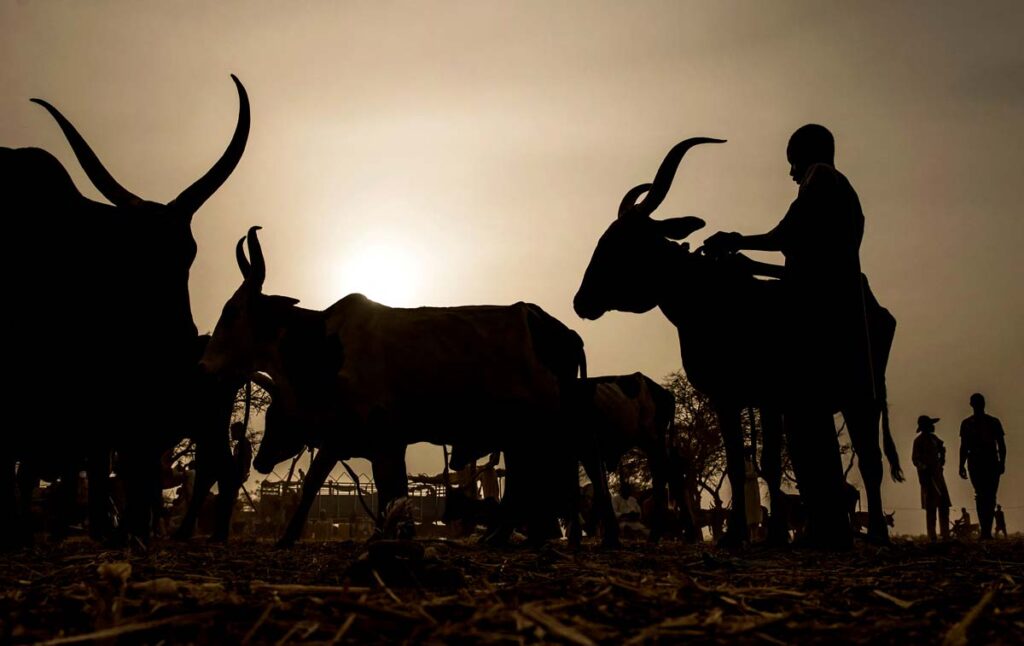Transhumance, the seasonal migration of livestock, is a deeply rooted form of pastoralism that has shaped the socio-economic and environmental fabric of West Africa for centuries. It is intricately tied to ecological, agricultural, health, economic, and sociocultural factors. Within the region, a distinction is often made between small-scale pastoral transhumance – conducted over short distances within a single country – and large-scale pastoral transhumance, which involves cross-border movement.
Each year, between January and May, nomadic herders from Sahelian regions undertake large-scale transhumance, moving southward to coastal West African countries in search of water and pasture for their cattle. According to the Food and Agriculture Organization (FAOSTAT, 2022), West Africa and the Sahel collectively housed an estimated 112.54 million head of cattle in 2019.
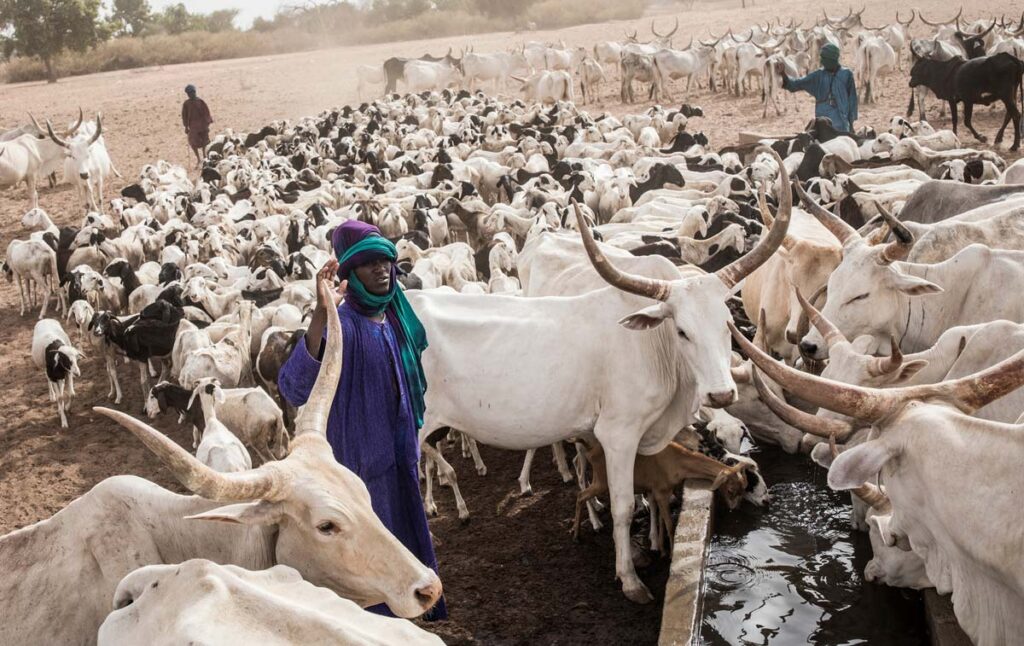
However, this age-old practice increasingly fuels conflict, particularly between nomadic herders, often Fulani (ethnic group), and sedentary farming communities. While some countries remain relatively unaffected, others experience significant human and material losses annually due to these clashes.
Such conflicts typically occur in host or transit areas located within the coastal states of the sub-region. Common triggers include the destruction of crops by roaming livestock, obstruction of herding corridors, non-compliance with regional regulations, theft of animals, and the lack of designated grazing areas.
The Africa Center for Strategic Studies reported in 2021 that more than 15,000 deaths have resulted from herder-farmer conflicts in West and central Africa since 2010, over half of which occurred after 2018. Nigeria remains the epicentre, with some 2,000 reported fatalities.
In April this year, Benue State in Nigeria’s Plateau region recorded 56 deaths in violent clashes between predominantly muslim Fulani transhumant herders and Christian farming communities. Since 2019, more than 500 people have died in that region, and over 2.2 million have been displaced, according to Nigerian geopolitical research consultancy SBM Intelligence.
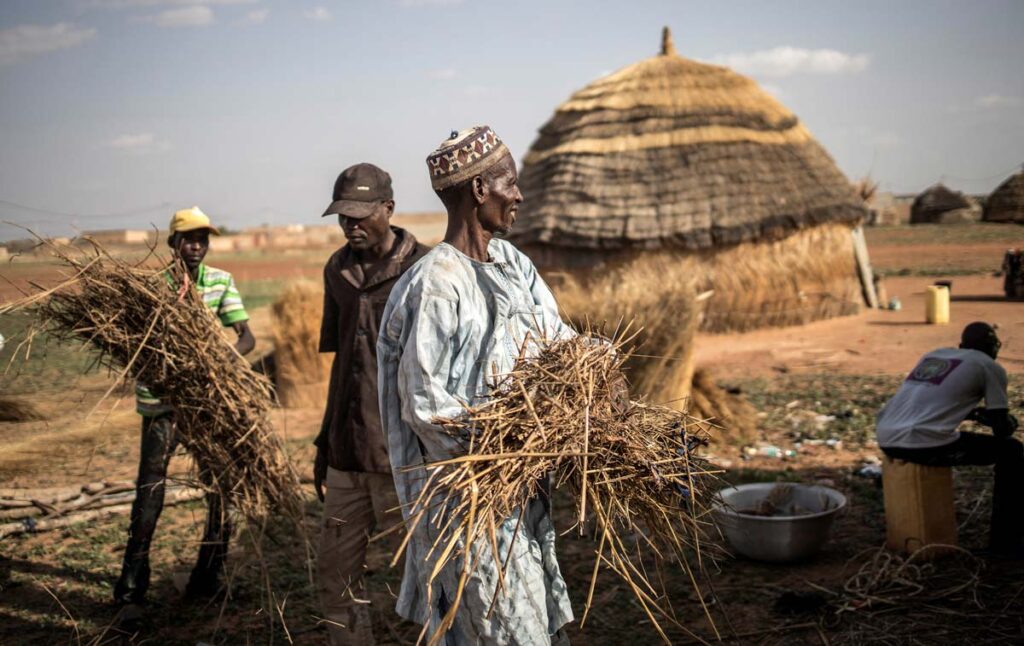
Once concentrated in Sahelian countries, these conflicts are gradually spreading southward into Gulf of Guinea states, creating new pockets of insecurity along the southern borders of Burkina Faso and Niger with Côte d’Ivoire, Ghana, Togo, and Benin. This troubling development has prompted coastal West African countries to intensify efforts to mitigate or prevent these increasingly frequent and deadly conflicts. Despite the economic importance of pastoralism, which contributes up to 44% of agricultural GDP in Sahelian countries and around 5% in coastal states (Economic Community of West African States (ECOWAS), 2010), its unregulated nature has often led to inter-community tension.
Recognising the need for structured governance, ECOWAS introduced a legal framework in October 1998 to regulate cross-border transhumance. Under this framework, pastoralists were granted free mobility across borders annually for a defined period, aiming to protect both agricultural assets and human lives.
Yet, this regulatory milestone has not succeeded in eliminating conflict. Implementation challenges persist at the national level. “The laws are there, but how can authorities ensure that communities in remote areas comply?” laments Seydou Oumarou, a Nigerien herder interviewed at a livestock market in Togo. “These areas are often beyond the reach of security forces and local leaders,” he told Africa in Fact.
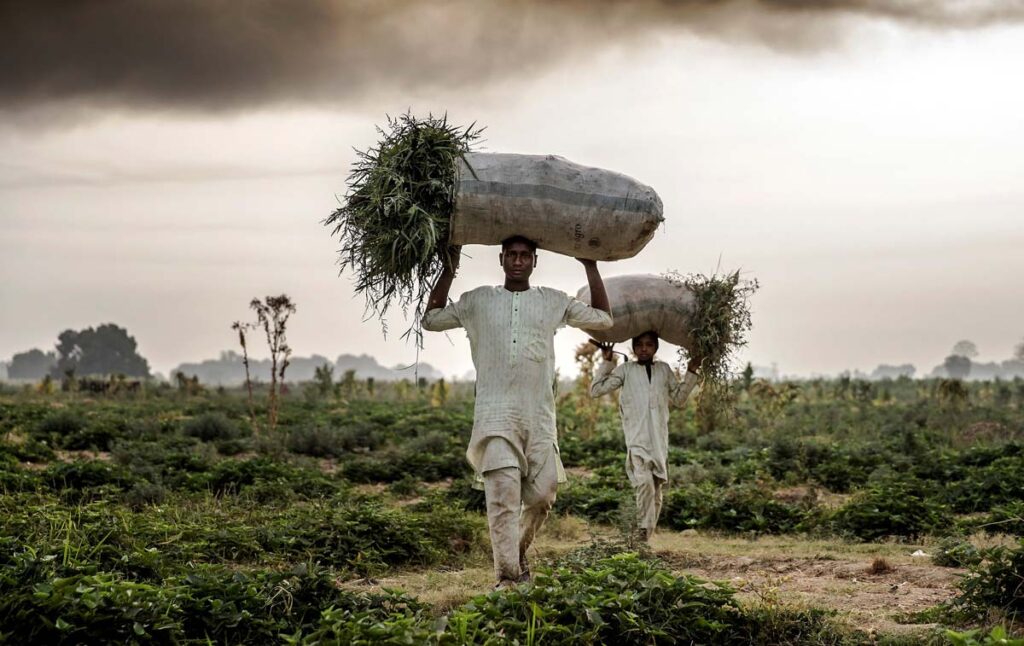
The lack of a binding, harmonised enforcement mechanism remains a key obstacle. National variations in legal application further complicate matters. In response, countries increasingly pursue bilateral agreements to manage cross-border pastoralism as an interim measure, before working towards full regional harmonisation.
As Boucary Diallo, representing the Regional Platform of Transhumant Herders (PRAO), puts it, “If countries begin with bilateral agreements, it becomes easier to expand implementation across the entire region later.” The PRAO, based in Burkina Faso, was established in August 2021 to bring together thousands of livestock breeders gathered in associations commonly called Rugga (which means breeders’ camp in Hausa) from Burkina Faso, Benin, Ivory coast, Ghana, Niger and Togo.
Bilateral examples include Burkina Faso and Côte d’Ivoire, which signed a memorandum of understanding in July 2013 to coordinate transhumance practices. Similarly, Burkina Faso and Togo entered a cooperation framework in October 2019. In 2020, Benin and Niger inked a bilateral accord that permitted the controlled entry of more than 50,000 head of cattle from Niger into Benin, reversing a prior ban imposed due to security concerns. This move helped avoid violent incidents that claimed dozens of lives between 2017 and 2018.
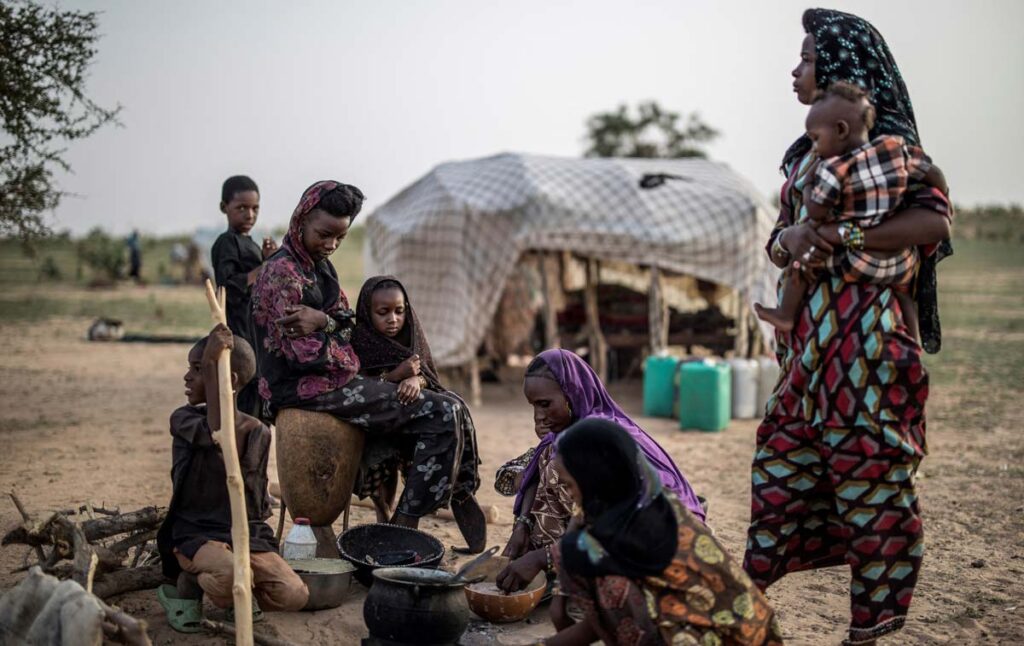
However, not all states favour open borders. Togo suspended cross-border transhumance in 2020 following several violent encounters. “Most of the herders entering Togo are not peaceful,” explained Security and Civil Protection Minister Yark Damehane at the time, attributing the surge in conflict to violent entrants.
Data from the same year, released by Togo’s Ministries of Security and Agriculture, underscore the gravity of the issue: 12 deaths, 14 injuries, 1,603 displacements, 130 cases of farmland destruction, and CFA 10 million ($17,600) in compensation payouts. ECOWAS has since urged member states to avoid unilateral bans and instead seek preventive and cooperative solutions.
Since 2019, several countries have established managed grazing zones and ranches to restrict and better organise transhumance, thereby reducing the risk of conflict. In Togo, around 30 managed cattle production zones (ZAPBs), each covering approximately 500 hectares, have been under development since 2024.
“These sites will be equipped with water and serve as designated areas should the suspension on transhumance be lifted,” said Damehane in an interview with Africa in Fact. Nigeria, the most conflict-prone country, adopted a similar strategy under the National Livestock Transformation Plan (NLTP) in 2019, aiming to improve security and reduce tension by promoting ranching.
However, critics note that this approach favours semi-nomadic, often Nigerian, herders, marginalising Sahelian transhumants who are most in need of support. Experts caution that without accounting for broader geopolitical realities, such as the rise of terrorism in the Sahel, the impact of these initiatives may be limited.
“Terrorism has increased the southward migration of herders seeking safety,” PRAO’s Boucary told Africa In Fact. “The authorities did not anticipate the scale of livestock movement triggered by these threats.”
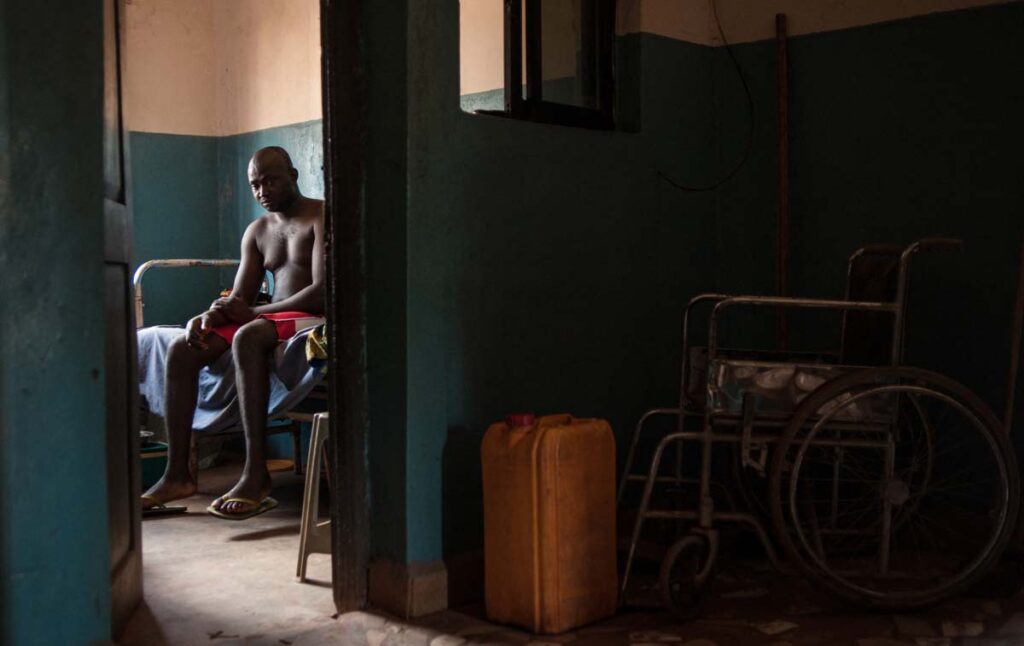
Countries like Ghana, Senegal, and Côte d’Ivoire have begun replicating the regulated, designated areas model. Senegal adopted a new pastoral code in 2023 to better regulate and demarcate grazing areas. Benin, meanwhile, reserved 6,000 hectares in 2022 to support sedentary livestock farming, a strategy aimed at transitioning some nomadic herders into permanent settlers.
In addition, some countries have banned the practice of herding livestock on foot to slaughterhouses or markets, opting instead for controlled transport methods to prevent confrontations with farmers.
However, given the weak judicial presence in rural areas, several West African states are turning to traditional conflict resolution mechanisms. Intercommunity consultation committees, led by religious and traditional authorities, are being established to pre-empt conflict and sustain social cohesion.
“These committees are instrumental in preserving peace and allowing all communities to thrive,” noted Damehane.
Civil society leaders agree. Pastor Edoh Komi, chairman of the Voice of the Voiceless, a pan-African civil rights organisation, remarked: “Farmers often accuse officials of favouring herders for bribes, leading to a breakdown in trust. With traditional and religious leaders involved, there’s hope for restoring justice.”
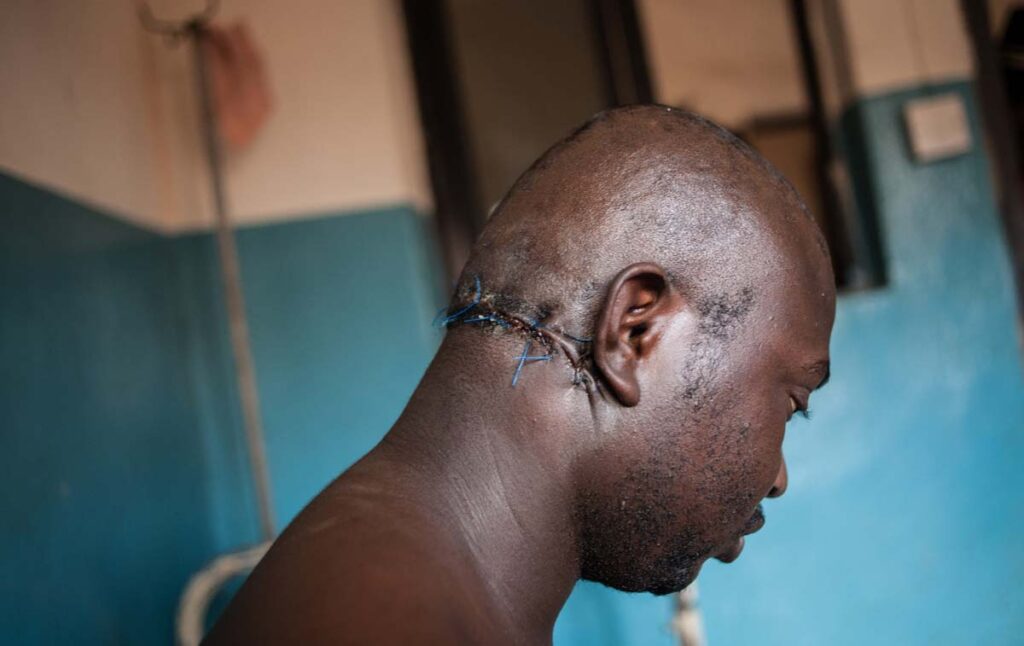
This conciliatory, community-based approach has already begun to yield dividends, reducing both human and material losses, as two local examples illustrate. In May 2024, an incident between a transhumant herdsman and a Togolese farmer almost escalated into general clashes in the south-east canton of Akoumapé. It took the quick intervention of the village chief, supported by the local mediation committee, to prevent this incident from triggering a general conflict between the transhumant herdsmen and local farmers.
Later, in October, two deaths were recorded in a clash between herders and farmers in the village of Kouforpiska in the commune of Matéri in Benin. According to media reports, herders’ homes and granaries were destroyed, despite the presence of defence and security forces deployed on site. It took the intervention of the mayor of the commune, as well as traditional and religious leaders, to calm the situation.
To complement these national efforts, ECOWAS, through its Regional Agency for Agriculture and Food, has launched a three-pronged policy framework to foster peaceful transhumance. Its strategy involves enforcing regional regulations, encouraging stakeholder dialogue, and investing in pastoral and animal health infrastructure.
ECOWAS is also urging member states to create local and national committees dedicated to transhumance oversight. Public awareness campaigns are also gaining traction, emphasising the economic and cultural importance of pastoralism and promoting peaceful coexistence.
Pastoralism is a vital sector that accounts for nearly 90% of the red meat consumed in West Africa. Ensuring its sustainability and mitigating conflict through cooperative governance, inclusive policy, and traditional wisdom is now a regional imperative – one that speaks to the very soul of West African life.

Blame Ekoué is the Togo correspondent for the BBC and for Paris-based media house, ANA. He has also reported for Associated Press and Radio France International. He holds a BA in Communications from the Leader Institute in Lomé. Formerly deputy editor of the West Africa Revue, he has been a contributor to the Lome-based Business and Finance magazine since 2015.

